Because it was the final year of the Second World War, 1945 will be remembered as a watershed moment in history. Adolf Hitler gave his final broadcast over the radio in January, after escaping to his Berlin bunker. The infamous Waffen-SS also started the evacuation of Auschwitz, one of the most heinous concentration camps set up by the Nazis during their brief Third Reich. In February 1945, with the war’s conclusion in sight, the Yalta Conference was conducted. President Franklin D. Roosevelt of the United States, Prime Minister Winston Churchill of the United Kingdom, and Premier Joseph Stalin of the Soviet Union represented the remaining three “big powers” of the Allies. The conference’s goal was to establish postwar arrangements in order to preserve peace amongst the victorious Allies after the war with Germany ended.
Two prominent heads of state passed away in this year. Adolf Hitler committed suicide in Berlin in April, as his adversaries closed in on him. In April, American President Franklin D. Roosevelt passed away. President Franklin D. Roosevelt died of a stroke at his personal getaway in Warm Springs, Georgia, after winning four presidential elections. Vice President Harry S. Truman was sworn in as President following Roosevelt’s death.
The unconditional surrender of Germany to the Allies in May 1945 marked the end of the European war. “Victory in Europe Day” was commemorated on the day the Germans surrendered. The bombings of Hiroshima and Nagasaki in August, however, maintained the war in the Pacific theatre. In September, Japan formally surrendered, and the Allies commemorated the day as Victory over Japan Day. The United Nations was created in October, which was the year’s final big international event.
Continue reading to discover more about the events of 1945. (January 25, 1945) (January 30, 1945) (February 04, 1945) (February 06, 1945) (February 16, 1945) (February 19, 1945) (February 23, 1945) (March 16, 1945) (March 22, 1945) (March 24, 1945) (March 30, 1945) (April 28, 1945) (May 07, 1945) (June 21, 1945) (July 16, 1945) (July 29, 1945) (August 06, 1945) (August 09, 1945) (August 15, 1945) (August 17, 1945) (August 17, 1945) (October 21, 1945) (October 24, 1945)
At 4:50 p.m. EST, the United Nations Charter went into effect, with the Soviet Union joining the list of signatories, bringing the total number of signatories to 29.
photo source: wikipedia.org
Event 
Grand Rapids, Michigan, became the first city in the United States to add fluoride to its water supply in order to prevent tooth decay. 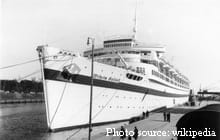
The sinking of the German ocean liner Wilhelm Gustloff by a Soviet submarine was the worst maritime disaster in history, with an estimated 9,000 persons killed. 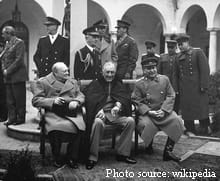
The Yalta Conference began on this day in 1945, during the closing phases of World War II, with Franklin D. Roosevelt, Winston Churchill, and Joseph Stalin convening to arrange the final defeat and occupation of Nazi Germany. 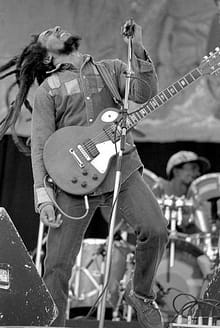
Bob Marley, a Jamaican singer-songwriter who rose to fame by fusing early ska, rock steady, and reggae styles into an electric rock-influenced hybrid, was born. 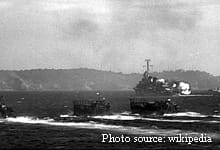
During World War II, American paratroopers landed on Corregidor Island in the Philippines and regained it from the Japanese within two weeks. 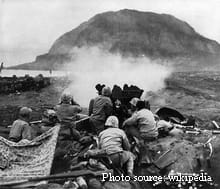
On this day in 1945, during the closing stages of World War II, US Marines invaded Iwo Jima in order to seize control of the strategically crucial island from the Japanese, who put up a valiant fight.
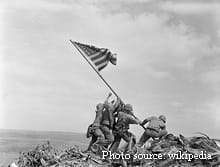
During World War II, six American servicemen flew the American flag atop Mount Suribachi on the island of Iwo Jima.

During World War II, US Marines took the Japanese island of Iwo Jima. Although the Battle of Iwo Jima was over, pockets of Japanese resistance remained. 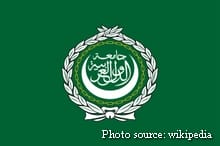
Egypt, Syria, Lebanon, Iraq, Transjordan (now Jordan), Saudi Arabia, and Yemen founded the Arab League in Cairo, a regional association of Arab governments in the Middle East. 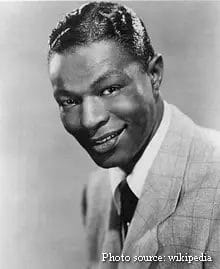
The King Cole Trio, led by American pianist and singer Nat King Cole, became the first record album to debut at No. 1 on the Billboard magazine pop album chart. 
Eric Clapton, a very renowned guitarist who played with the Yardbirds and Cream before launching a successful solo career, was born in the United Kingdom. 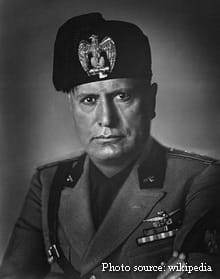
On this day in 1945, Italian dictator Benito Mussolini, dubbed "Il Duce" after a series of military blunders that made him unpopular even among his own Fascists, was apprehended while attempting to depart Italy and executed. 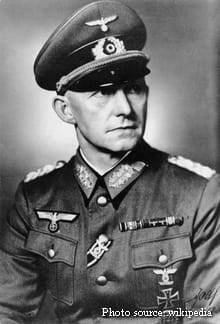
General Alfred Jodl led a German delegation to General Dwight D. Eisenhower's headquarters in Reims, France, where they signed the surrender paperwork that officially ended World War II in Europe. 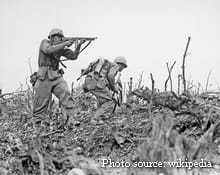
On this day in 1945, Japanese resistance on Okinawa was eventually defeated, less than three months after US troops landed there as the final stepping stone before the planned World War II assault on Japan's main islands. 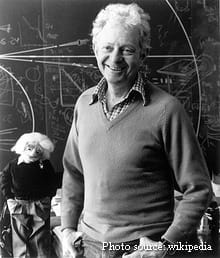
On this day in 1945, the United States tested the first atomic bomb at Alamogordo, New Mexico, then dropped atomic bombs on Hiroshima and Nagasaki in Japan the following month, hastening the end of World War II. 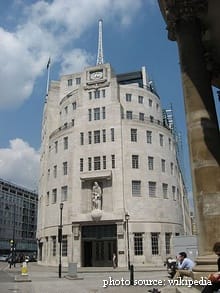
The BBC Light Programme radio channel for mainstream light entertainment and music is launched. 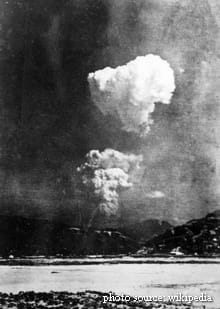
Hiroshima, Japan is destroyed as the United States B-29 Enola Gay drops the atomic weapon "Little Boy." Around 70,000 people are killed instantly, and tens of thousands die from burns and radiation illness in the years that follow. 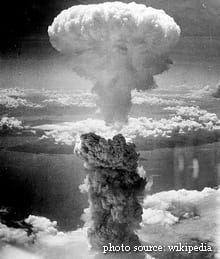
Fat Man, an atomic bomb, is dropped by the U.S. B-29 Bockscar on Nagasaki, causing widespread destruction. There was a total of 35,000 fatalities, including between 23,200 and 28,200 Japanese war workers, 2,000 Korean forced workers, and 150 Japanese soldiers. 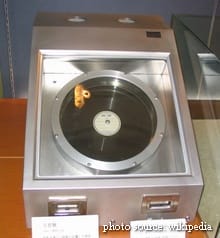
Following the effective surrender of Japan in World War II and the broadcast of Hirohito's capitulation, Korea obtains independence from the Japanese Empire. 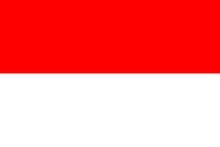
Indonesia Independence Day.
photo source: wikimedia.org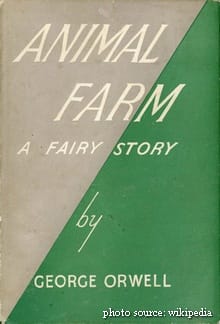
Animal Farm, an anti-utopian satire by English novelist George Orwell, became a classic. 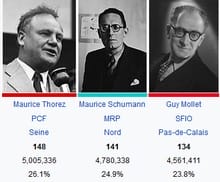
As part of the woman's suffrage movement, women in France gain the right to vote in parliamentary elections. Many people believe that women in France in the 18th century started the contemporary woman's suffrage movement.
photo source: wikimedia.org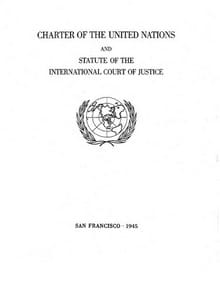





GIPHY App Key not set. Please check settings